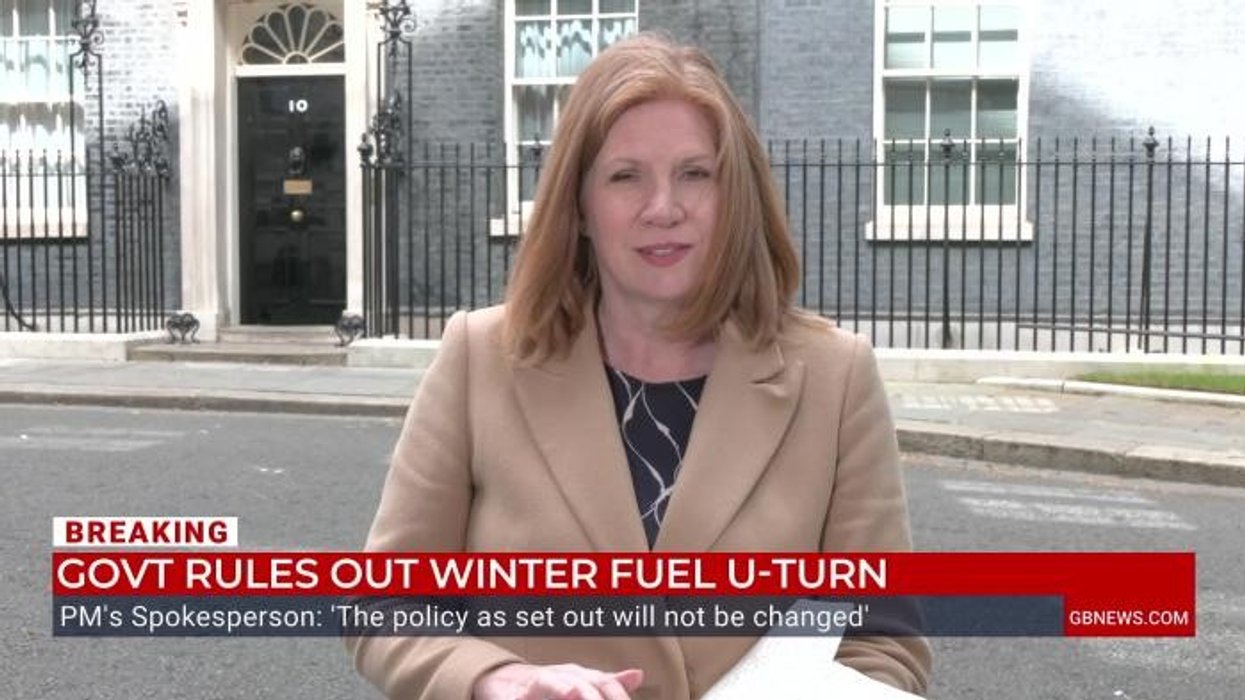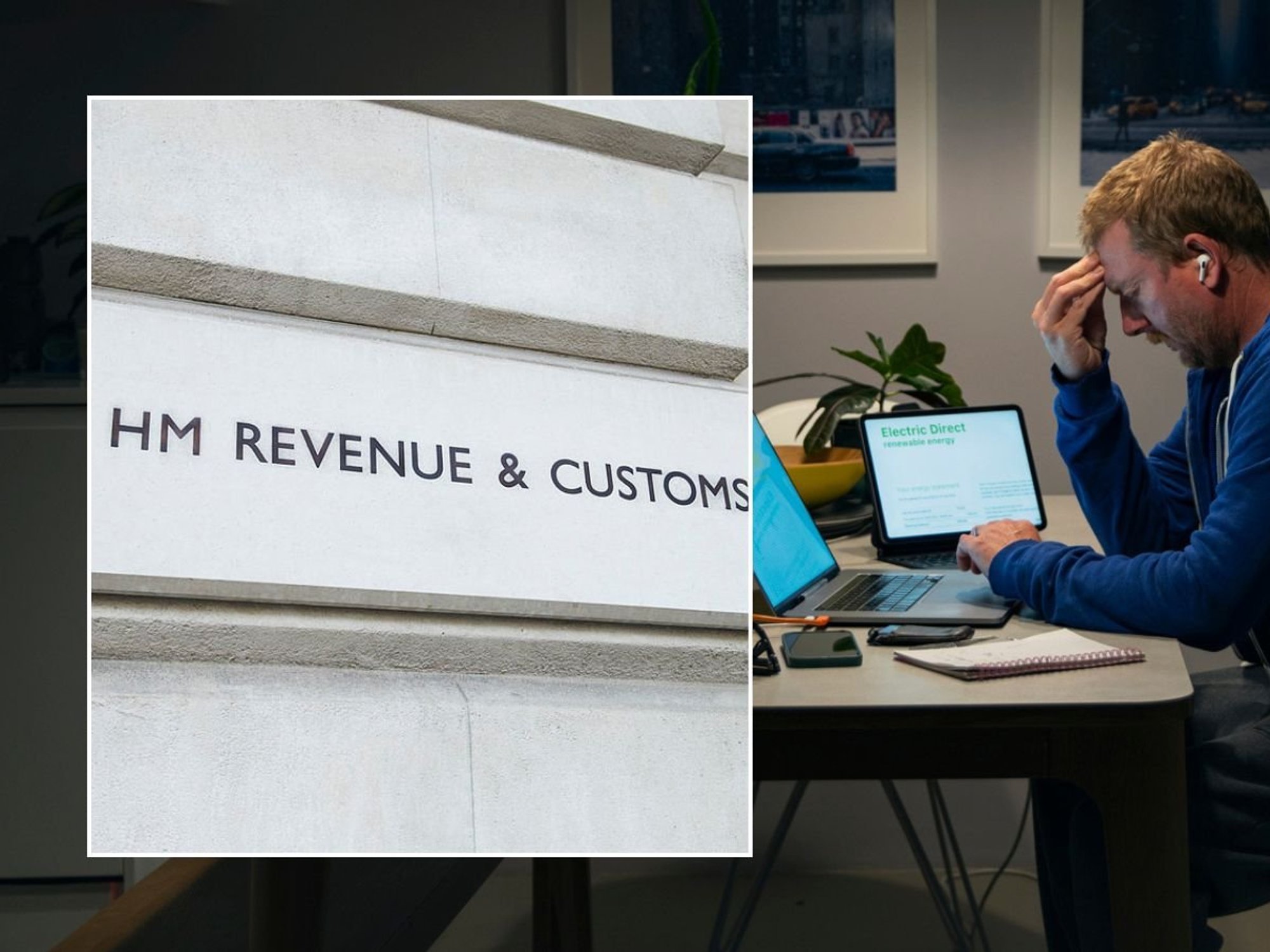Pension crisis looms as millions risk poverty in retirement adding £32bn to Labour’s benefits bill
GB NEWS

Millions of workers risk retiring in poverty - which could further add pressure on the taxpayer
Don't Miss
Most Read
Latest
Britain's housing benefit bill may need to double to prevent millions of workers retiring in poverty, according to new research released by Scottish Widows.
The figures, published on Wednesday, paint a concerning picture for the future of retirement finances in the UK.
Almost a quarter of individuals saving into defined contribution pensions will still be paying rent or mortgages when they stop working.
This looming crisis could force taxpayers to fund an additional £32.1bn annually in housing support for pensioners.
The Government currently expects to spend £35bn on housing benefit across all age groups during 2025-26.
Just over two million people currently claim housing benefit, which helps with rent payments for those who are unemployed, on benefits or have low incomes.
If all pension savers with housing costs required support, this would increase the annual bill to £38.2bn, marking a six-fold increase from the £6.1bn pensioners claimed in 2023-24.The average housing cost in retirement is estimated at £10,600 per year.

If all pension savers with housing costs required support, this would increase the annual bill to £38.2bn
| GB News/ GettyHousing benefit is being replaced by Universal Credit for most people, but will remain in place for anyone over state pension age.
According to Scottish Widows, around 15.3 million people currently save into a defined contribution pension. Worryingly, 20 per cent of these savers are heading towards poverty in retirement.
The research found that 23 per cent of savers, approximately 3.5 million people, will face housing costs when they retire. This growing problem threatens to place significant pressure on the benefits system in coming years.
Pete Glancy, of Scottish Widows, highlighted the stark reality of housing costs compared to pension income.
He said: "The average private rent in the South East is about 100 per cent of the average pension incomes and in London, it's 130 per cent.
"We need to help more people get on to the property ladder when they're younger, and for those who will never achieve that, we need an adequate supply of social housing to bring those rental costs down.

Pension crisis looms as millions risk poverty in retirement
| GETTY"If we don't, the benefits bill for the country is going to increase significantly at a time when the country can least afford it."
According to the Pension and Lifetime Savings Association, a basic retirement includes around £50 a week for groceries, one UK-based holiday a year and around £100 towards maintaining a property. Pensioners in this income bracket are unable to afford a car.
The number of people at risk of failing to reach even this basic standard has now hit 39 per cent, up from 35 per cent in 2023, the report showed. This represents a concerning trend of increasing retirement insecurity among UK workers.
Jonathan Watts-Lay, of retirement specialists Wealth At Work, warned that benefits were a "minefield" that not everyone can navigate.
"The whole benefits system is very, very complex. There will be a lot of people out there that don't understand which benefits they can apply for," he said.
Many pensioners struggle with the application process, with some giving up entirely. This complexity creates a significant barrier for elderly people seeking financial support. The benefits system's intricacy may prevent eligible pensioners from receiving crucial assistance.
Watts-Lay continued: "My concern is that there will be some pensioners that are eligible for benefits that will go without and history tells us that is the case." He explained that there are several categories of pensioners who miss out on benefits.
Some are simply unaware of what they can claim. Others attempt to navigate the system alone but find it too difficult. A third group will persevere through the complex process.
Unfortunately, many eligible pensioners will ultimately go without crucial financial support due to these barriers. The research highlights a growing crisis at the intersection of housing, pensions and welfare.
 The majority of pensioners living in poverty in the UK are women | GETTY
The majority of pensioners living in poverty in the UK are women | GETTY With millions of workers facing housing costs in retirement, the strain on public finances could be substantial.
Without intervention, Britain faces a stark choice between allowing pensioner poverty to increase or doubling the housing benefit bill.
Experts suggest that improving access to property ownership and increasing social housing supply could help mitigate this looming financial burden.
For many pensioners, however, navigating the benefits system will remain a significant challenge.











